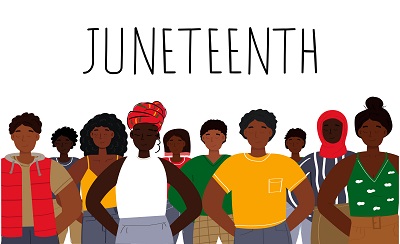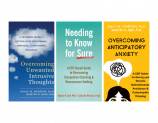Celebrating Progress: Why the Celebration of Juneteenth Matters to the Black Community
 As various moments of progress continue to be highlighted throughout the country, the celebration of Juneteenth as a federal holiday is another attempt at acknowledging the evolution and advancement of the Black community. Short for “June Nineteenth”, Juneteenth marks the date of the effective end of slavery in the United States. For many members of the Black community, having this day federally recognized for the first time on June 19, 2021, doesn’t just demonstrate that the nation has moved one step closer to accepting the Black community’s historical contribution and experience, but it also helps the community feel more visible.
As various moments of progress continue to be highlighted throughout the country, the celebration of Juneteenth as a federal holiday is another attempt at acknowledging the evolution and advancement of the Black community. Short for “June Nineteenth”, Juneteenth marks the date of the effective end of slavery in the United States. For many members of the Black community, having this day federally recognized for the first time on June 19, 2021, doesn’t just demonstrate that the nation has moved one step closer to accepting the Black community’s historical contribution and experience, but it also helps the community feel more visible.
However, for me as a Black woman, the celebration of Juneteenth is much more than just a 24-hour long holiday. Instead, it painfully reminds me of the strength, trauma and extreme sacrifice my ancestors experienced in order for me to be afforded the opportunities I have today. It also serves as a reminder of the continued work we need to do to ensure future generations are provided the same, if not additional, opportunities.
With a history of slavery and racism in the United States, the Black community has suffered the most, with their basic human rights largely ignored. That’s why, despite the Emancipation Proclamation being signed by President Lincoln in 1863, slavery continued in southern states like Texas for more than two years! It wasn’t until June 19, 1865, that federal troops arrived in Galveston to ensure enslaved people were freed.1 Hence, Juneteenth…
Because of how prevalent and traumatic slavery and the slave experience became, and continues to be, for many Black families, the community tends to hold holidays like these in very high regard. While some people may see Juneteenth as just another holiday or excuse to take off work, others, both in and out of the Black community, use the holiday as a chance to highlight just how far the community and country have progressed as it relates to equality.
Yes, many Americans view the country as the land of the free and opportunities, but for minorities, their reality comes with a continuous fight for equality. Because of that reality, my celebration of Juneteenth this year was more internal and centered around understanding and journaling. Understanding the lack of basic human rights and decency that my ancestors had to face as slaves gives me a better understanding and appreciation for their mental and emotional well-being. Similar to the anxiety and PTSD I tend to experience when I read about police brutality or violence against Black people, I feel I can empathize and relate to the mental struggles of feeling as though your life does not matter.
Slavery in this country has mentally and emotionally impacted Black families since its origin. Historically and systematically, slavery ripped homes apart and separated millions of families. Because of the hardship they faced, many Black families still deal with a lack of generational identity as well as mental health challenges that accompany identity loss. Experiencing slavery’s violence and inequality still contributes to the fear and trauma many in the community experience today.
Unfortunately, it took more than a century after Juneteenth for the country to begin to practice true equality and acknowledge the treatment of Black Americans and the impact slavery had on generations to follow. That’s why, for members of the Black community and for myself, commemorating Juneteenth helps acknowledge the strength, sacrifice, and determination of our ancestors. It also recognizes the history and unfair treatment experienced by many Black Americans and reminds the community about how far they have progressed.
Today, the Black community still deals with mental health struggles like anxiety, depression and even PTSD as violence against minorities remains an ongoing and increasing problem in this country. This reality underscores the importance of celebrating and truly acknowledging holidays like Juneteenth, as it highlights how far the nation has come, but also how much more work remains to be done.
Some people may use the day to practice self-care and reflect internally like me, others may choose to celebrate more publicly with friends and family. Regardless of how the holiday is celebrated, members of the community deserve to have their historic experiences acknowledged. While Juneteenth is only celebrated one day a year, the continued progress for equality in the country and for the Black community is an ongoing conversation that should continue year-round.
Share Your Story and Voice and Help #breakthestigma Around Mental Health
Support ADAA's Mission - Every Gift Makes an Impact
Join an ADAA Online Peer to Peer Support Community
Footnotes:



















